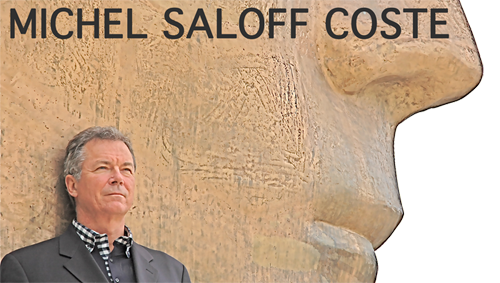January 6
Course Overview & Intro; Strategic Landscape; Role of 'The State'; 'The Community' v 'The Individual'; Sustainability; Methodology; Student Design Projects
Session #1
| |
Europe's Strategic Challenge: China, USA, Software and Computing
|
|
The Role of 'The State' (L’état); 'The Community' vs 'The Individual'
|
|
Sustainable Development Goals (SDGs) and 'Sustainability' - Foundations of European Economic Strategy, Values and Identity
|
|
Using Ethnography & Cultural Anthropology to Deconstruct Innovation Ecosystems
|
|
Student Team Design Projects
|
January 13
Startups, Venture Capital, Accelerators, University Entrepreneurship, Private Equity, Corporates, M&A
Session #2
| |
What are the Factors Underlying the Strong Growth of Europe's Startup Hubs and Venture Finance System? London, Berlin, Paris, Stockholm, Dublin, Wien, Helsinki, Tallinn, Warsaw, Prague
|
|
Europe's Corporations: Startup Engagement, Open Innovation, Mergers & Acqusitions (M&A), and Valuations; Management Practices, Hierarchies, Governance and Corporate Culture
|
January 27
Family-owned Enterprises and Management Culture in Europe; State-owned Enterprises
Session #3
| |
How Has the Family-ownership Model Shaped Continental European Thinking About Corporate Culture, Structure, Management and Governance? How Does This Tradition Constrain Culture Change in Companies?
|
|
How Has the Family-owned Sector Influenced the Mission and Structure of the European University and Science Ecosystem?
|
|
How are State-owned Enterprises Similar|Dissimilar to Family-owned Enterprises? in Corporate Culture, Transparency, Use of Information Technology, Governance?
| |
February 3
European Science, Engineering, Design and Industry Traditions, Cultures and Systems
Session #4
| |
How Have Europe's Strong Science|Mathematics Traditions and Culture Shaped Its Approach to Commercialization of University Inventions? to Teaching of Software Engineering?
|
|
Why are Mechanical Engineering and Manufacturing Accorded High Status in European Industry, Society and Universities? How Does this Compare to the United States?
|
|
What are the Challenges and Opportunities for European Companies to Adopt 'Design Thinking' Practices? How Does 'Design' in Europe Differ from 'Design Thinking'?
|
February 10
Public vs Private: Universities, Business Schools, Coding Academies; Foundation Universities; Higher Education Cultures; University Reforms
Session #5
| |
The Role, Mission, Structures and Governance of Public Universities: Patterns in Business and Informatics Faculties
|
|
The Rise of Competing Models: Emergence of Private and Foundation Universities, Business Schools and Coding Academies; University Reform Initiatives
|
|
How Does the Role, Elite Status, Independence, Accountability and Protection of Professors Influence University Innovation Culture and Science Impact?
| |
February 24
Software & Computing Industry: Status, Competencies, Education & Research, Roadmap and Prospects
Session #6
| |
How Did Europe Arrive at Its Current Structural Weakness in Computing, Software Industry, Cloud Infrastructure and AI?
|
|
Europe's Strengths in Software: Enterprise, Gaming, Fintech, eCommerce, Cybersecurity, IoT, Wellness, Transportation Services, IT Outsourcing, Embedded, Open Source: SAP, Adyen, Dassault, Spotify, Transferwise, N26, Ubisoft, Skype, ESET, Wargaming, Drupal, EPAM and More
|
|
What Happened to Europe's Computer Companies? Olivetti, Nixdorf and Groupe Bull
|
|
Computing Hardware - Semiconductors & Electronics: Chips, Mobile, ARM, Infineon, Nokia, Arduino and Beyond
|
|
How is 'Informatics' Different from 'Computer Science'? Foundations, Historical Roots and Reforms
| |
March 2
Cleaning House: Corporate Malfeasance||Mis-Management as a Barrier to Innovation Performance; The Roles of Legal and Media Regimes in Exposing/Hiding Scandal; Investigative Journalism & Transparency
Session #7
| |
Corporate Misbehavior in Europe: The Case of Volkswagen
|
|
Corporate Malfeasance in Silicon Valley: Theranos, Uber, WeWork
| |
March 9
Innovation for The Commons: Cities, Infrastructure, Transportation & Social Innovation; Lessons for Silicon Valley & Asia; Student Design Projects
Session #8
| |
Urban Design, High Speed Rail, Bicycles, Social Entrepreneurship
|
|
What can Silicon Valley Learn from Europe?
|
|
What can Asia Learn from Europe?
|
|
Presentations: Student Team Design Projects
|

Aucun commentaire:
Enregistrer un commentaire